Third Year, Professor Anne Filson, University of Kentucky
The intent of this studio was to develop a master plan for a carbon refinery and biofuels lab at Duke Energy’s East Bend Power Plant in Boone County, Kentucky. The EPA-compliant plant recently became a test site for the University of Kentucky Center for Applied Energy Research’s innovative algae bioreactors, which support a culture of living algae cells to turn harmful CO2 emissions into biofuels profitable to the power plant. This project encompasses both the integration of a field of bioreactors into the existing infrastructure of the site, as well as developing a campus for biofuel upgrading and research.
In this proposal, a field of free-standing algae bioreactor tubes are connected underground by a water siphoning system and distributed parametrically in relation to the slope of the site; where the land is steeper, bioreactors are are fit more closely together, and in flat fields they are distributed more sparsely to allow for more sun exposure. The campus is designed within a kink in this dynamic field, both showcasing the subtle beauty in the shifting densities and allowing for spacing appropriate to program. A visitor center, biofuels upgrading facility, high bay materials lab, and greenhouse all nestle into the folds of the surrounding field and rise in layers on a steep site to open views onto the landscape. Within the structures, small conditioned rooms are differentiated from a larger envelope, allowing large open spaces for equipment and rooms at a more relatable scale for offices and workspaces. The glass facade running between the buildings creates a visual flow between buildings, and a ramp system that runs with the landscape allows easy transitions between spaces created by elevation changes. Employee circulation thus runs laterally through the structures, while visitors can watch work from the interior loop.
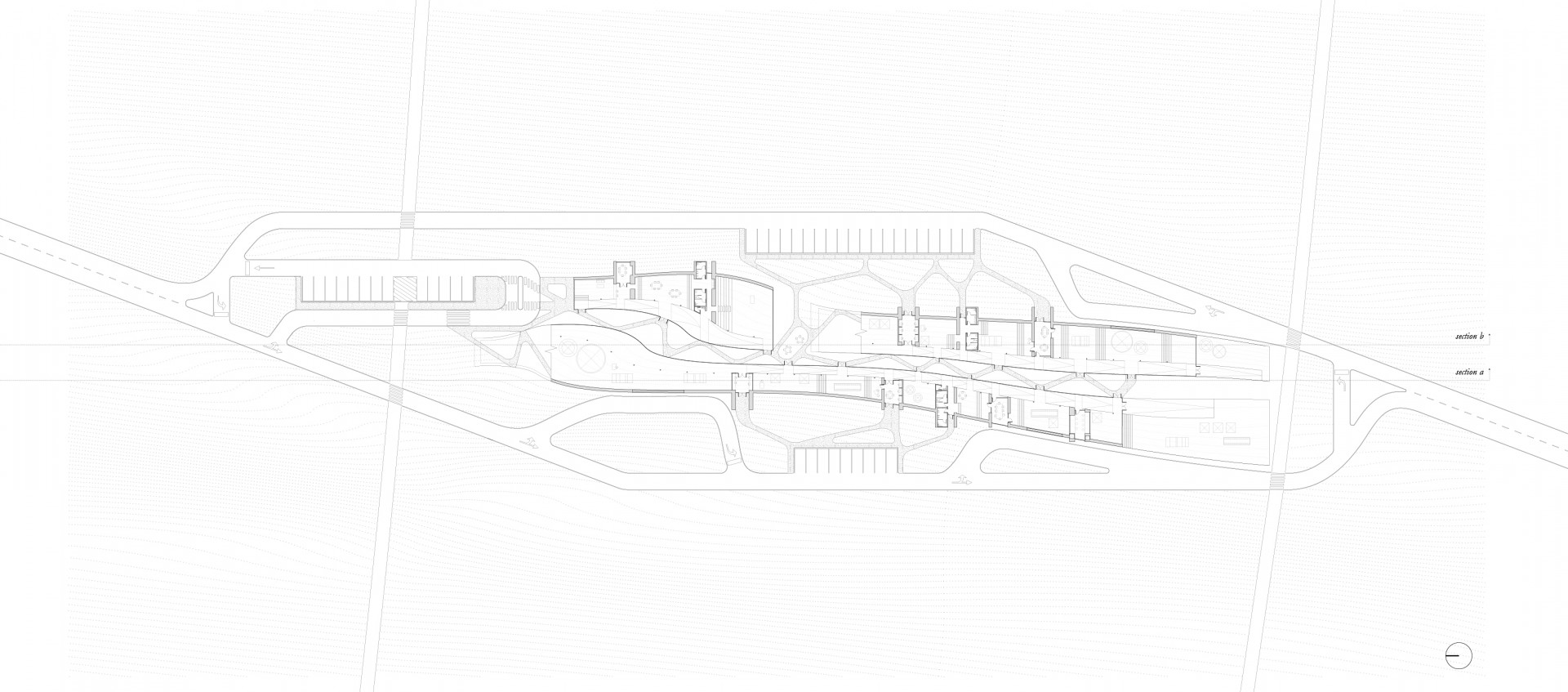 plan
plan  sections
sections 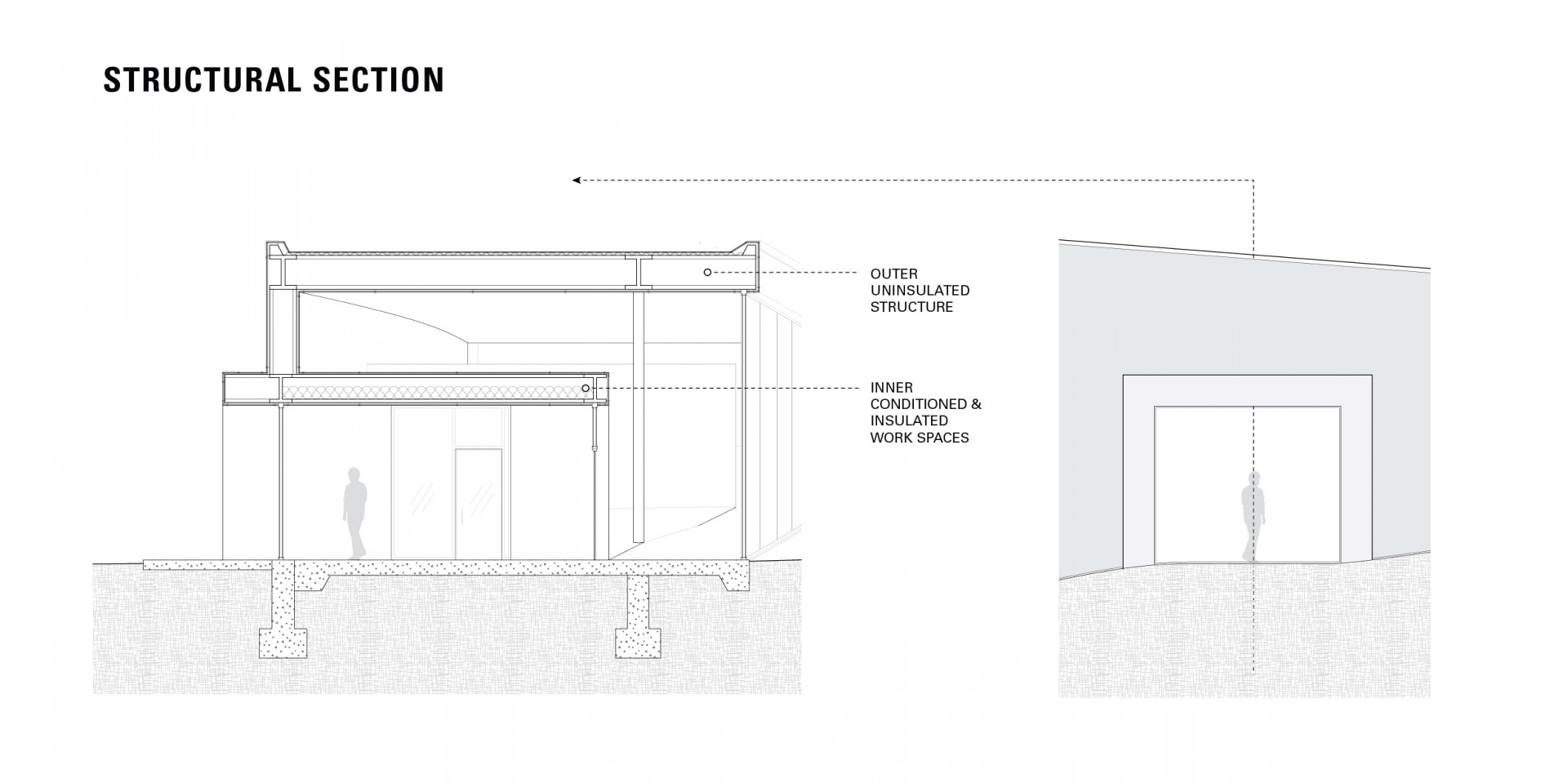
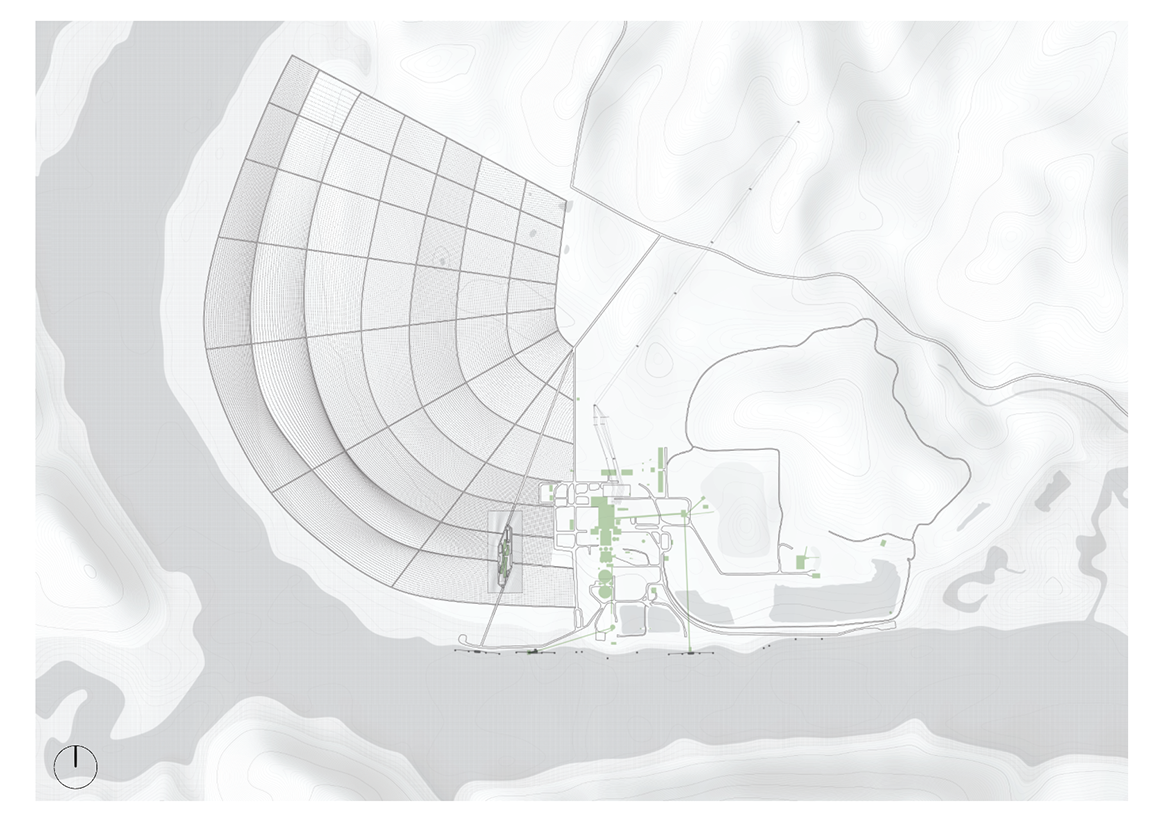 site plan
site plan 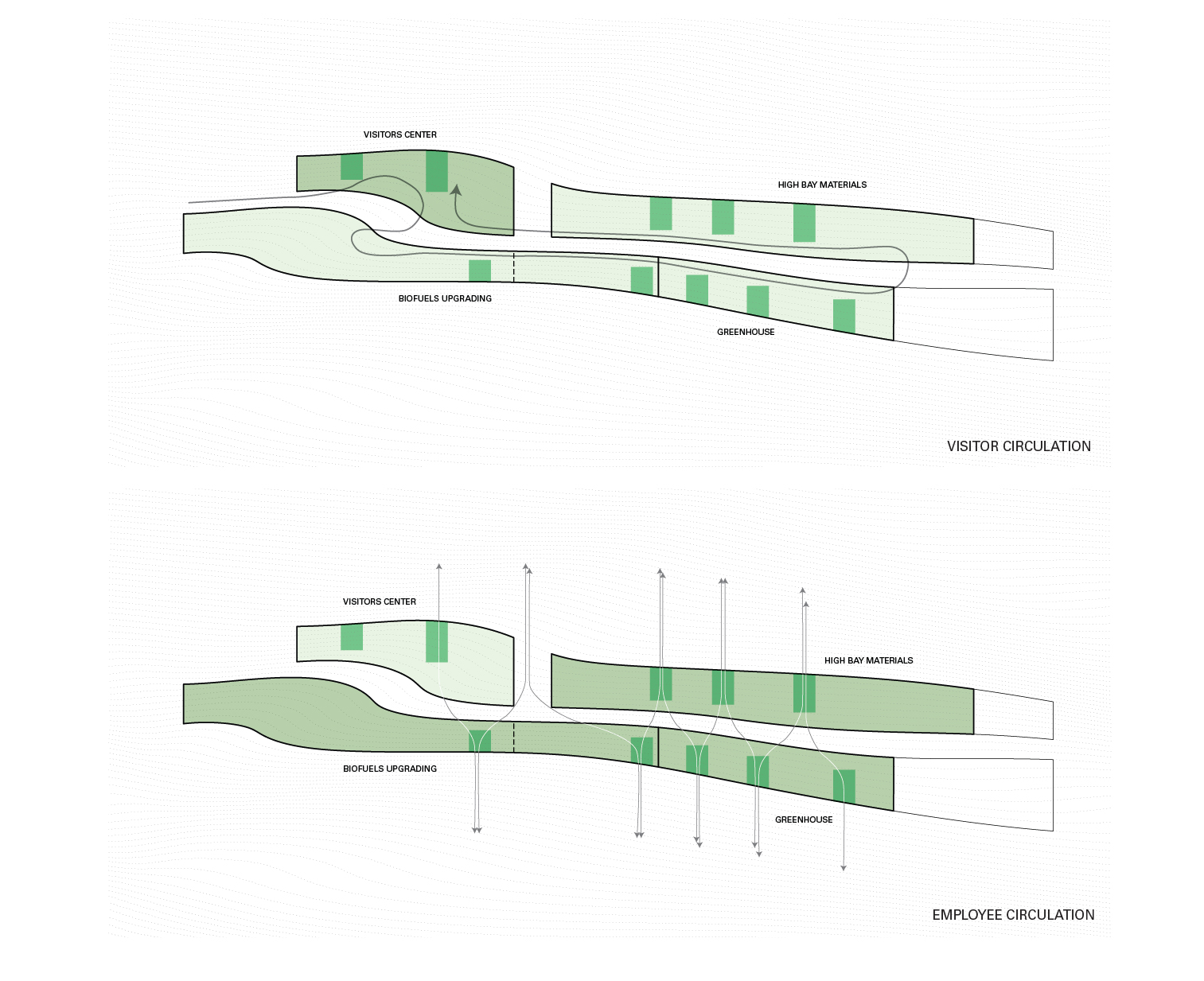 circulation
circulation 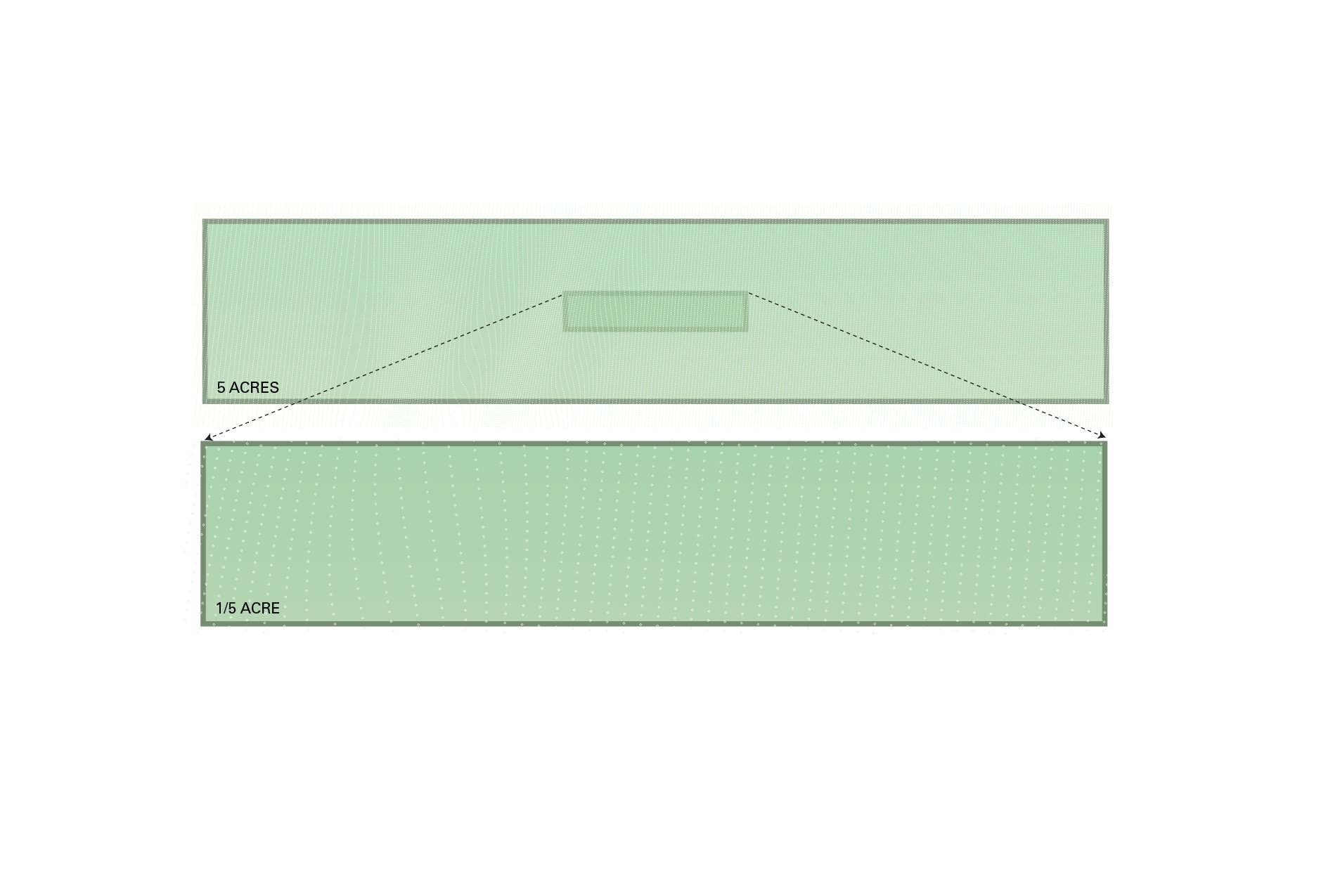 algae array
algae array 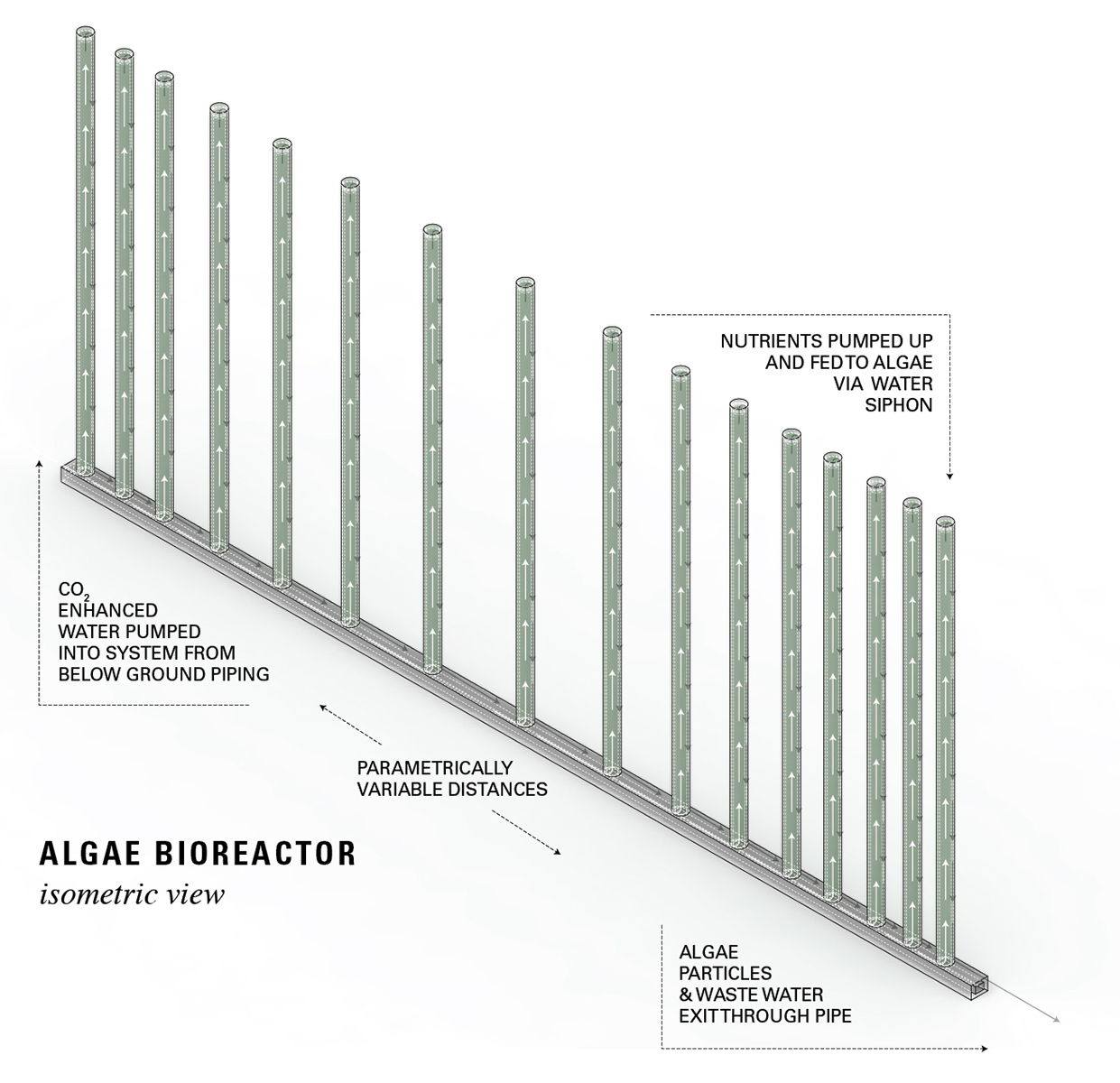
 physical model
physical model 
